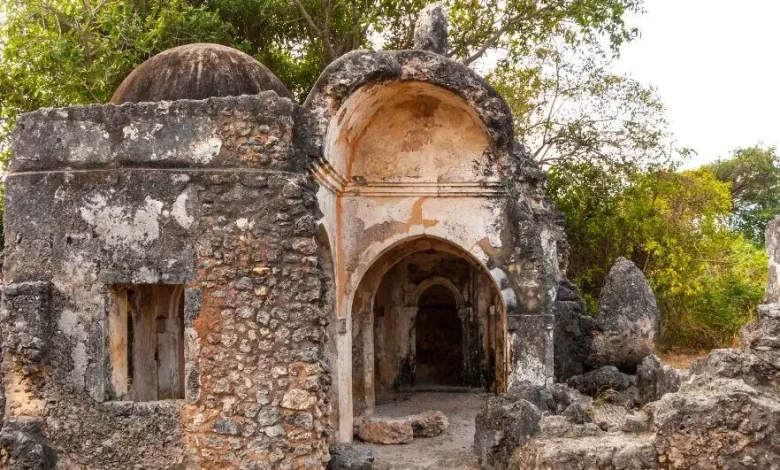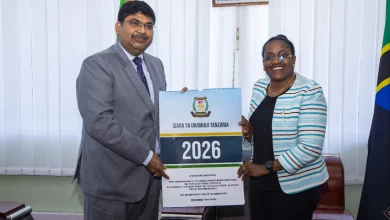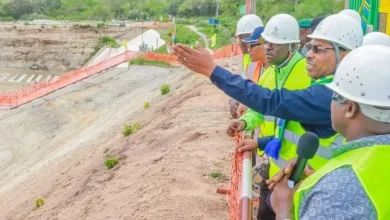How Washington is writing a new colonial script for Africa

DAR ES SALAAM: TANZANIA’S inclusion in a U.S. visa bond program and repeated security warnings expose how modern diplomacy can quietly mirror the old colonial order.
When the United States announced that Tanzanians would soon have to pay up to $15,000 to secure a business or tourist visa, it called the move “a tool for border security.” But for many in Dar es Salaam, the decision carried a different weight — a reminder that control over African mobility is still written elsewhere.
Beginning October 23, 2025, Tanzanians applying for short-term visas under the Visa Bond Pilot Program must deposit thousands of dollars, refundable only if they return home before their visa expires. The program, previously used under the Trump administration, was revived with little consultation or diplomatic notice.
“This is a quiet form of punishment disguised as policy,” says a Tanzanian diplomat familiar with the talks. “You cannot preach partnership and equality while demanding collateral from travelers based on where they were born.”
The move places Tanzania among a group of African nations — including Malawi, Zambia, Gambia, and Mauritania — whose citizens must now pay to prove their compliance.
Supporters in Washington insist the program targets visa overstayers, not specific nations. Yet the pattern is hard to ignore. The same logic that once denied Africans the right to move freely now reappears in the form of bureaucratic barriers, financial bonds, and selective warnings.
Meanwhile, the U.S. Embassy in Dar es Salaam has issued a series of security alerts ahead of Tanzania’s national elections, warning American citizens to avoid public gatherings, political rallies, and the southern regions of Mtwara and Ruvuma. The alerts cite “potential instability,” though Tanzanian authorities have not issued any comparable warnings.
To many Tanzanians, the message is clear: their country is portrayed as a risk zone even when life remains peaceful on the ground. “It’s a diplomatic contradiction,” says Dr. Salma Juma, a foreign policy scholar. “America never issues global alerts for its own shootings or unrest, yet it warns the world against African elections. That’s how narratives are built — and controlled.”
The Power to Define Risk
In global politics, image is currency. And whoever defines “risk” defines who gets trusted, who gets access, and who gets questioned at the airport.
The U.S. travel warnings do more than protect citizens — they shape how investors, tourists, and even aid agencies perceive a country. “These alerts create economic anxiety,” says a senior official at Tanzania’s Ministry of Foreign Affairs. “They discourage travel, raise insurance costs, and quietly tell the world that we’re unsafe.”
ALSO READ: From colonial legacies to transformative tax reforms
Analysts say this is part of a broader pattern of neocolonial diplomacy — one that uses policy instruments, not gunboats, to influence developing nations. In this modern script, restrictions on visas and movement achieve what military bases once did: they regulate access and reinforce hierarchy.
Tanzania’s government has responded diplomatically, acknowledging the U.S. notice but insisting on “a fair and balanced resolution through dialogue.” Spokesperson Gerson Msigwa said the discussions on migration policy are ongoing, hinting at quiet frustration beneath the formal language.
Behind the scenes, officials question the timing. The restrictions arrive just weeks before a major election, when the country is already sensitive to foreign commentary on governance and rights.
“The symbolism is dangerous,” says a political analyst in Dodoma. “It signals that Washington still reserves the right to police African behavior — not only within borders but across oceans.”
While Americans can enter most African nations without paying bonds or facing complex scrutiny, Tanzanians and other Africans must now treat travel as a financial gamble. For many young professionals, the new rules feel like collective punishment.
“This isn’t about overstayers,” says Lilian Mtega, a Dar-based journalist. “It’s about power — who moves freely and who must first prove they’re worthy.”
Critics argue that the U.S. is applying double standards: while advocating for open markets and democracy abroad, it closes doors to those it claims to partner with. And it does so through subtle tools that rarely make headlines — visa conditions, donor restrictions, and risk alerts that quietly stigmatize.
For Tanzania and other African nations, the challenge is not just diplomatic — it’s narrative. Each alert, each restriction, contributes to a global perception of Africa as unstable, unsafe, and unready. Yet, the same nations issuing these warnings struggle with their own crises of violence, racism, and governance.
“This is how control looks in the 21st century,” says Dr. Juma. “It comes wrapped in policy language, not military uniforms. But the goal is the same — to remind us that our freedom, our image, and our movement remain conditional.”
As the visa bond takes effect later this month, Tanzanians are left asking a question their forebears once asked of colonial administrators: Who decides who we are — and who gets to move?





